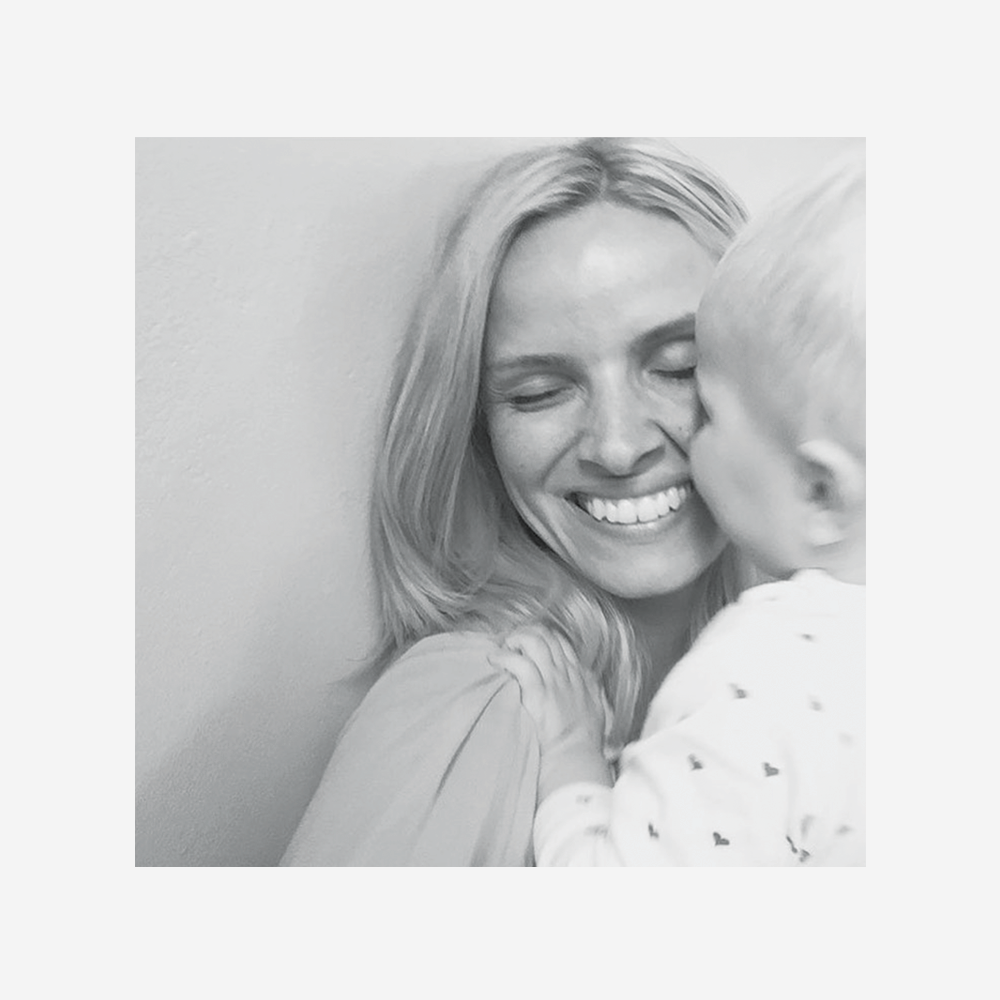How to Deal With Fatigue In Pregnancy – Why Do I Get So Tired?
Why do we get so tired in pregnancy?
- Not getting enough of the nutrients you need.
- Having a diet rich in refined sugars and carbohydrates.
- Not eating enough or regularly.
- Getting deficient and low in nutrients, vitamins and minerals.
- Lack of exercise.
- Not getting enough sleep.
- Malabsorption of your supplements.
How to get rid of tiredness in pregnancy:
- Eat a diet rich in mixed vegetables organic and higher welfare proteins, natural fats.
- Ensure you get to sleep at or before 10pm.
- Avoid sugary and pre-packaged foods.
- Maintain regular bowel motions (daily).
- Get thorough blood tests done to screen for mineral and vitamin deficiencies or even 'just' low levels.
- Aim for a minimum 30minutes of daily physical activity (walking, stretching, swimming etc)
- Consider vitamin and mineral supplementation - get sound advice on what you need and which supplements are right for you.
The nitty gritty of pregnancy fatigue and what you can do about it
Fatigue in pregnancy and after birth is hard to avoid, but it can be managed and kept to a minimum. The biggest mistake most of us make in pregnancy and after birth is that we have expectations to ‘bounce back’ and ‘feel normal again’. So, my number one message to you is that you have now (as you're pregnant) entered a new phase of your life, and you must look ahead instead of trying to return to 'normal' or what was. Your life is changing, and this brings with it some new challenges, a new normal. If you are proactive and embrace these changes, you can help yourself to feel a lot more comfortable.
The most common issue is sleep. You wake up to urinate at night during pregnancy, and your baby may be kicking and hiccupping during your sleep. You may also feel more tired during the day or in phases of your pregnancy, most likely due to growth spurts in your tummy, nutrient deficiencies—or, perhaps, you're too busy? In pregnancy, you must realise that your primary energy reserves are going to your baby, who is growing at a phenomenal speed! So, you can help yourself by slowing down, scheduling breaks into your workday, and making fewer plans in the evenings and weekends. See this as investing time into your self and your baby.
My top supportive tips for improving sleep and reducing fatigue are:
- Vedic Meditation (I started this type of meditation during my 3rd trimester with my first baby in 2010, and I have never looked back). This type of meditation is the easiest form of meditation I have ever tried, and I have tried many. It has been shown that doing this meditation twice daily for 20 minutes will help restore your energy levels and offers the equivalent of up to 4 hours of sleep. So it is my number 1 recommendation to all new mothers, as we will have a drastic change in sleep patterns once our baby arrives earthside.
- I also suggest you take magnesium. Magnesium can help settle cramping and restless legs which are common in pregnancy. Magnesium is also hugely important during the postpartum and while breastfeeding. Magnesium will be in your pregnancy multi, but additional sources of magnesium from your food is crucial: Nuts and seeds, tahini (also a good source of calcium which is another essential mineral), dried dates and figs, grass-fed red meat and organic chicken. You may need extra magnesium supplementation apart from your multivitamin, all depending on your symptoms — feel free to get in touch with me to help you with that.
- Deficiencies, such as iron deficiency, will also keep you feeling lethargic and tired. Perhaps, you're yawning a lot? It is a typical sign of low iron levels. An iron deficiency is easy to rectify if caught early and supplemented correctly. Consider a proper pathology investigation into other nutrients.
- Your diet dictates the majority of how you are feeling. Following a diet that offers 3-4 different types of vegetables with each meal (3 x daily), a source of good quality protein with each meal, as well as a natural source of fat like coconut oil, organic butter, nuts and seeds and avocado, and 1-2 fresh fruits, along with plenty fresh filtered water daily, will help maintain and build your health. Anything less than that could be the course of your fatigue because you just aren’t getting all the nourishment that you need.
- Lastly, a common issue is that we run on adrenaline, so I strongly recommend you to reduce or avoid caffeine entirely during pregnancy and in the fourth trimester. This includes coffee, chocolate, black tea, and green tea. Removing caffeine can be a frightening thought for some, but don't panic; start by looking at how much you might be consuming in a day, and perhaps, start to reduce your coffee or black tea a little. The world is a better place when we don't feel tired or run on nervous energy such as adrenaline.
Once your baby is here and you find yourself in the postpartum fog of frequent night feeds, hormonal ups and downs, physical recovery, and your usual day-night routine turned on its head, I have a few suggestions that may help you feel less tired—and maybe you can even win a little energy.
- As mentioned above, do Vedic meditation. Meditate as frequently as you can; it goes a long way. Many new mothers don't feel they can sleep when their baby is sleeping. Most women actually say they like to have a little time to themselves when their baby is napping. I was such a mum. I really struggle to sleep during the day, and my help was meditation.
- Get familiar with ways to breastfeed your baby while you're lying down. This may take a while to learn to do safely and usually works best once your baby has a little more neck stability, but I encourage you to consider working towards this as a way to feed your baby at night so you can rest or even sleep while you do so. This works best if you have a co-sleeper bed; I have my recommendation for that here.
- Avoid having to get up and into another room at night to settle your baby. If you have your baby in the same room as you (co-sleeper or just in a bed in your bedroom), you can attend to your baby without having to fully wake up or even turn on the lights, that can really help you to stay in your least-awake state and that can help save your energy and fall asleep faster once you've settled your baby.
- Don't do much apart from getting familiar with your new way of life. If you get social too quickly after birth and try to entertain guests or go on too many outings in one week, both you and your baby will likely crash emotionally from over stimulation. We can overestimate our capabilities in the fourth trimester. We are in a very vulnerable state of recovery and adjusting to the new way of life, so taking on too much can really mess with our emotions and our energy. I recommend you only have one guest per day or less! Maybe aim for maximum 2 visitors per week in the first few weeks. Sometimes, we can feel so high on oxytocin and joy that we feel like seeing a few friends or family members is doable, but afterwards, we can be surprised by how draining it was. Rest assured that this is not forever; you will be able to get social again, but in the first 3 months after birth, it is wise to slow right down and do very little apart from caring for your baby.
- Get a follow-up blood test to ensure you are not depleting your nutrient storages as this can be the catalyst for emotional turbulence such as anxiety, depression and lethargy. As well as affect your health in the long term.
Do you feel you need help with sleep or draining pregnancy symptoms? Or perhaps you're a new mum in need of help to make sure you're eating right? Read more here about this topic, Watch this video about pregnancy fatigue and listen to my free podcast Mumspire for more great information and get in touch with me. I offer support worldwide via Skype, Zoom, and phone.

Get A Free Gift
My Top 10 Foods for a Happier Healthier Mum
As a fellow mum (of three wonderful girls) I really know how challenging and exhausting being a mum can be at times!
When I first became a mum I realised just how much my lifestyle and diet played a part in how well I coped with the demanding tasks of caring for my little ones.
I help so many women through all kinds of burnout, exhaustion, weight gain, digestive and hormone problems, illness and general low's.... and I never get tired of seeing just how well they respond to my graspable and nurturing support. It really makes my job such a blessing, to be able to help you.
Alright, let's get to it! Here are my top 10 tips to become a happier and healthier mum!




